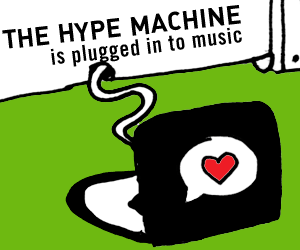Chronic insomnia is a recurring difficulty in falling or staying asleep, persisting for at least three months. Although sleep disturbances are common during alcohol detox, ongoing problems hint at more severe issues. tommy lee alcohol Symptoms may include frequent awakenings during the night, irritability or depression, daytime fatigue, or problems with attention and memory.
At first, it’s not going to be easy to change the routine, but over time, you’ll develop a healthier schedule which doesn’t rely on booze. Complementary therapies like relaxation and biofeedback therapy, yoga, mindfulness meditation, progressive muscle relaxation, and aromatherapy can all assist with your sleeping patterns. Don’t give up if you don’t notice any massive changes straight away.
- However, the more reliant you become on using alcohol to sleep, the harder it’s going to be to change your routine again.
- Patients of alcohol withdrawal often report frequent nighttime awakenings, difficulty falling asleep, and unsatisfactory sleep quality.
- Consider turning off all screens at least one hour before bed time to give your brain a break from the excess stimulation.
- The struggle with withdrawal insomnia can feel like an eternity—but rest assured, it’s not forever.
These Science-Backed Strategies Will Help You Fall Asleep Fast
Professional guidance ensures a safe and effective strategy for overcoming withdrawal-induced sleep disruptions. Although working out might seem counterintuitive during withdrawal, regular exercise can significantly improve your sleep quality. Aim for moderate-intensity workouts like brisk walking or swimming most days of the week, but avoid stimulating activity close to bedtime. Such problems can persist for some time even after you decide to quit drinking. In fact, difficulty sleeping is one of the most common alcohol withdrawal symptoms and one that causes many to relapse.
Frequently Asked Questions About Alcohol Withdrawal Insomnia
Moreover, if the individual has any other underlying health issues, the duration might prolong as their body is already in a compromised state. The rebound effect is a principal actor in the drama of alcohol withdrawal and the resultant insomnia. As we bid goodbye to alcohol, our bodies fight to restore equilibrium. This biological phenomena catalyzes an overproduction of certain chemicals in the brain that were previously suppressed by alcohol. Remember, understanding what’s happening to your sleep when you quit alcohol is half the battle.
The Impact of Alcohol on Sleep Quality and Patterns
Consuming balanced meals throughout the day, avoiding caffeine, sugar, and heavy meals close to bedtime can go a long way in improving sleep quality. Quit alcohol, and your body begins to readjust without its habitual depressant. This recalibration process can lead to a collection of symptoms known as alcohol withdrawal. These symptoms can range from mild to severe but often include significant disruptions to sleep. And RISE can give you an exact time each day based on your circadian rhythm. Physical activity promotes better sleep by helping to regulate mood and decompress the mind.
A soothing bedtime routine signals to your body that it’s time to wind down. Engage in calming activities such as taking a warm bath, reading a book, or listening to soft music. These activities can replace the sedative effects of alcohol, easing the transition into sleep for those who find it hard to sleep without alcohol. You’ll find that you naturally become more tired and feel more ready for bed shortly before bedtime, if it’s the same time each night. Waking up at the same time – even if you’re still tired – will help you feel more tired at night, too. Research shows alcohol often has a detrimental effect on your ability to access high quality, deep sleep.
R.D.-Recommended Habits for Better Sleep
You may have also developed a tolerance to the sedative effects of alcohol and other factors, like poor sleep hygiene, could be keeping you awake. Alcohol withdrawal insomnia is a common challenge, and rehab programs offer evidence-based strategies to manage symptoms. With a focus on sleep hygiene, relaxation techniques, and comprehensive addiction treatment, rehab provides professional support for a successful recovery journey. Another notable change during this phase is the reduction in sleep-related anxiety and insomnia symptoms.
Meaning that drinking alcohol as a sleep aid is more likely to leave you irritable, anxious, and struggling to concentrate the next day. The importance of sleep in overall health and well-being cannot be overstated. Quality sleep is essential for physical recovery, cognitive function, emotional regulation, and immune system support. When alcohol interferes with sleep, it can have far-reaching consequences on various aspects of health and daily life.

